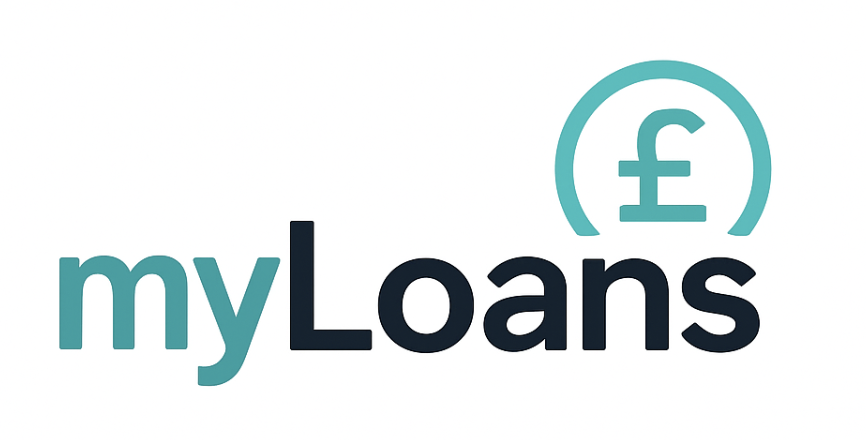Understanding Joint Loan Eligibility Calculators
In today’s financial landscape, taking out a loan is a common practice for many individuals and couples. Whether you’re planning to purchase a home, consolidate debt, or finance a major purchase, understanding how joint loans work can be a crucial step in your financial journey. This guide will delve into joint loan eligibility calculators in the UK, helping you navigate the process smoothly.
What is a Joint Loan?
A joint loan is a financial agreement where two or more people agree to borrow money together. It’s a popular option for couples or business partners who want to combine their incomes and strengthen their application. By applying jointly, borrowers can often qualify for a larger loan amount or a better interest rate than they might individually.
Benefits of Joint Loans
-
Higher Loan Amounts – Combining incomes may allow you to borrow more.
-
Better Interest Rates – Lenders may offer lower rates due to stronger combined affordability.
-
Shared Responsibility – Both parties are legally responsible for repaying the loan.
How Does a Joint Loan Eligibility Calculator Work?
A joint loan eligibility calculator is an online tool that estimates your eligibility for a joint loan. It considers factors such as both applicants’ incomes, credit histories, and existing debts.
Information You’ll Need to Enter
-
Combined Income – Total income of all applicants, which impacts how much you could borrow.
-
Credit Files – UK lenders check both applicants’ credit files via Experian, Equifax, or TransUnion.
-
Existing Debts – Current financial commitments affect affordability.
-
Desired Loan Amount – The figure you’re looking to borrow.
What the Calculator Provides
-
Estimated Loan Amount – How much you might qualify for.
-
Likely Interest Rate / Representative APR – Based on your financial profile.
-
Repayment Terms – Possible loan terms and monthly repayment estimates.
Factors Affecting Joint Loan Eligibility in the UK
Income and Employment
Lenders assess your combined household income and employment stability. A higher, steady income improves eligibility.
Credit Histories
Both applicants’ credit histories are reviewed. If one partner has a weaker file, it can affect the rate or even the approval decision.
Existing Financial Commitments
Outstanding loans, credit cards, or overdrafts impact your debt-to-income ratio. Lower commitments generally improve affordability.
Loan Purpose
Some loans (e.g. joint mortgages) have stricter requirements than joint personal loans or debt consolidation loans.
Types of Joint Loans
-
Joint Personal Loans – Unsecured loans for general purposes like weddings, home improvements, or travel.
-
Joint Loans for Debt Consolidation – Combine multiple debts into one loan with a single monthly repayment.
-
Joint Loans for Bad Credit – If one applicant has a poor credit history, applying with a stronger co-borrower can improve eligibility.
-
Joint Loans for Couples – Often used by partners for large shared expenses or financial goals.
-
Joint Mortgages – The most common form of joint borrowing in the UK, used to purchase property.
Applying for a Joint Loan – Step by Step
-
Assess Your Finances – Make sure both parties agree on the loan’s purpose, amount, and repayment plan.
-
Compare Lenders – Review joint loans from banks, building societies, and online lenders. Always compare the Representative APR.
-
Gather Documentation – Proof of ID, income, address history, and bank statements. Both applicants must provide documents.
-
Use a Joint Loan Eligibility Calculator – Get an estimate of how much you could borrow and potential monthly payments.
-
Submit the Application – Apply with your chosen lender. Both applicants’ details will be checked during the assessment.
Conclusion
Joint loans can be a useful financial tool, giving access to larger borrowing amounts and potentially better interest rates by combining two applicants’ financial strengths. By using a joint loan eligibility calculator, you can get a clearer idea of how much you might be able to borrow and the terms you could be offered.
Always compare lenders, pay close attention to the Representative APR and fees, and remember that both applicants are equally responsible for the repayments. Whether you’re consolidating debt, making home improvements, or financing a major purchase, understanding how joint loan eligibility works will help you make an informed decision.
Alternatives to Payday Loans | Safer Borrowing Options
Payday loans are often marketed as a quick fix for cash emergencies, but they are not the only option available. Whether you’re facing an unexpected bill, car repair, or temporary cash shortfall, there are several alternatives to payday loans that may offer lower...
Payday Loans with Bad Credit | Direct Lender Options
If you’ve been refused credit elsewhere and are wondering whether you can still get a payday loan with bad credit, you’re not alone. Thousands of people in the UK search every month for options like “payday loans with bad credit” or “direct lender payday loans”. While...
Personal Loan Debt Consolidation UK – Is It Right for You?
Juggling multiple credit cards, overdrafts, or loans can be stressful and expensive. A debt consolidation loan allows you to combine everything into a single monthly repayment, often at a lower interest rate. In 2025, UK lenders from high street banks to online...
Emergency Loans UK – How to Borrow Fast in 2025
When an urgent expense hits — like car repairs, medical bills, or a broken boiler — quick access to funds can be essential. In 2025, emergency loans in the UK provide a way to borrow fast, with some lenders offering same-day decisions and payouts. This guide explains...
Top 10 Personal Loan Providers UK 2025 – Rates, Features & Eligibility
The UK personal loan market in 2025 offers more choice than ever, with banks, supermarkets, online lenders, and credit unions all competing for borrowers. The best deal for you depends on your credit score, loan size, and repayment term — but comparing providers side...
Best Debt Consolidation Loans UK 2025 | Top Options
Managing multiple debts can feel overwhelming, especially with credit cards, overdrafts, and personal loans all charging different interest rates. A debt consolidation loan can simplify your finances by rolling everything into one fixed monthly repayment — often at a...
Best Bad Credit Loans UK 2025 – Top Lenders Compared
Having a poor credit score, CCJs, or past defaults doesn’t mean borrowing is out of reach. In 2025, several UK lenders specialise in products designed for people with bad credit — offering smaller loans, flexible repayment terms, and eligibility checks that won’t harm...
Home Repair Loans UK – How to Cover Unexpected Costs in 2025
A leaking roof, broken boiler, or urgent plumbing issue can quickly turn into an expensive problem — often when savings aren’t available. In 2025, home repair loans in the UK provide a way to spread the cost of essential fixes into manageable monthly repayments. This...
Green Energy Loans UK – How to Finance Eco-Friendly Home Improvements in 2025
Eco-friendly upgrades such as solar panels, insulation, heat pumps, and EV chargers can cut energy bills and boost property value — but they require a significant upfront investment. In 2025, green energy loans in the UK provide a way to spread the cost of sustainable...
Moving House Loans UK – How to Cover Relocation Costs in 2025
From deposits and removal vans to solicitor fees and new furniture, moving house in the UK can quickly add up to thousands of pounds. Not everyone has savings set aside to cover these costs upfront. In 2025, moving house loans in the UK provide a way to spread...
Education Loans UK – How to Fund Studies and Professional Courses in 2025
Not all education in the UK is covered by government student finance. Postgraduate degrees, professional qualifications, and private training often require self-funding — with tuition fees and course costs running into thousands of pounds. In 2025, education loans in...
Holiday Loans UK – How to Spread the Cost of Travel in 2025
Holidays can be some of the most rewarding experiences of the year, but they often come with a price tag that’s hard to cover upfront. From flights and hotels to all-inclusive packages and once-in-a-lifetime trips, the costs can add up quickly. In 2025, holiday loans...
Best Personal Loans UK 2025 – Top Lenders Compared
The UK personal loan market in 2025 is more competitive than ever, with high street banks, supermarkets, online lenders, and credit unions all offering products to suit different needs. Choosing the right provider can save you hundreds in interest and ensure...
Medical Loans UK – How to Finance Healthcare Costs in 2025
While the NHS covers most essential treatment, waiting lists, private care, and specialist procedures mean many people face out-of-pocket medical expenses. From dental work and fertility treatment to cosmetic surgery and urgent private healthcare, costs can run into...
Car Loans UK – Personal Loan vs Hire Purchase vs PCP in 2025
Buying a car in 2025 usually means more than just choosing the right vehicle — it also means deciding how to pay for it. In the UK, the three main options are a personal loan, hire purchase (HP), or personal contract purchase (PCP). Each has its own advantages,...

















